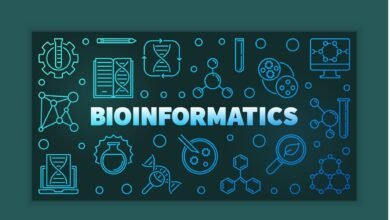
Study Smarter, not harder is the key to academic success for U.S. students who want to maximize their learning without burning out. Many students believe that long hours of cramming and last-minute memorization are the only ways to get good grades, but research shows that effective study techniques backed by science can help you retain more information in less time. By adopting strategic learning methods, you can improve comprehension, boost productivity, and reduce stress while achieving better results.
The traditional approach of passive reading and repetition often leads to frustration and wasted effort. Instead, this guide will explore proven study strategies, including active learning, time management, and memory-enhancing techniques, tailored specifically for U.S. students. Whether you’re in high school or college, these Study Smarter habits will help you work more efficiently, stay motivated, and perform better on exams all while maintaining a healthy balance between academics and personal life.
How to Study Smarter, Not Harder
Understand Your Learning Style
Every student absorbs information differently. Some learn best through visual aids, while others prefer auditory or kinesthetic methods. Identifying your learning style can significantly improve retention. For example, visual learners benefit from diagrams and charts, whereas auditory learners retain more through recorded lectures or discussions. Taking a learning style assessment (such as the VARK questionnaire) can help tailor your Study Smarter approach. Once you know your preferred method, customize your notes and revision techniques accordingly. This personalized learning strategy ensures that Study Smarter sessions are more engaging and productive.
Active Learning Over Passive Reading
Simply rereading textbooks or highlighting notes common passive study habits creates an illusion of mastery while yielding poor long-term retention. Research shows that active learning techniques like the Feynman Technique (explaining concepts in simple terms), self-quizzing, and practice problems force your brain to retrieve and apply knowledge, strengthening neural connections far more effectively. Methods such as teaching concepts aloud, creating concept maps, or solving real-world examples engage higher-order thinking, transforming memorization into true understanding.
Time Management
Poor Time management leads to cramming and burnout. The Pomodoro Technique is a proven method to enhance focus. It involves studying for 25-minute intervals followed by a 5-minute break. After four cycles, take a longer break (15-30 minutes). This approach prevents fatigue and improves productivity. Additionally, using digital planners (like Google Calendar or Trello) helps students schedule study sessions, assignments, and deadlines efficiently. Prioritizing tasks using the Eisenhower Matrix (urgent vs. important) ensures that time is spent wisely.
Leverage Technology for Smart Studying
Modern students have access to educational apps that enhance learning. Tools like Anki (for spaced repetition), Notion (for organizing notes), and Khan Academy (for supplemental tutorials) make studying more interactive. Additionally, AI-powered tools like Grammarly help refine essays, while speech-to-text software assists in note-taking. However, students should avoid digital distractions by using apps like Forest or Focus@Will to block social media during Study Smarter sessions.
Spaced Repetition for Long-Term Retention
Cramming the night before an exam is ineffective. Instead, spaced repetition reviewing material at increasing intervals strengthens memory. Tools like Anki and Quizlet automate this process, ensuring that information is revisited just before it’s forgotten. Studies show that distributed practice (studying over time) outperforms massed practice (last-minute studying). By scheduling regular review sessions, students retain information longer and reduce pre-exam stress.
Healthy Habits
Academic success isn’t just about studying physical and mental health play a crucial role. Poor sleep impairs cognitive function, while a balanced diet fuels the brain. Students should aim for 7-9 hours of sleep, consume brain-boosting foods (like nuts, berries, and fish), and engage in regular exercise to enhance focus. Mindfulness practices, such as meditation or deep breathing, also reduce stress and improve concentration. A healthy body supports a sharp mind, making Study Smarter sessions more effective.
Test-Taking Strategies
Effective test-taking begins before you even see the exam paper start by carefully reading all instructions and scanning the entire test to allocate time wisely using the 10/20/30 rule (10% planning, 20% reviewing, 70% answering). Tackle easy questions first to build confidence and secure quick points, marking challenging ones to revisit later. For multiple-choice, use process of elimination to discard obviously wrong options before making educated guesses statistically, your first instinct is often correct.
Seek Help When Needed
Office Hours Are Your Secret Weapon
Professors hold office hours specifically for student questions yet surprisingly few students take advantage. Attend with prepared questions about confusing concepts or upcoming assignments. This shows initiative while getting personalized explanations that can clarify material better than any textbook. Bring your lecture notes and attempt problems beforehand so you can pinpoint exactly where you’re stuck.
Tutoring Centers Offer Free Expert Help
Most campuses provide free tutoring services staffed by advanced students or teaching assistants. These tutors know exactly how to explain concepts for your specific courses since they’ve recently taken them themselves. Schedule regular sessions rather than waiting until you’re completely lost. Many centers offer walk-in help for last-minute questions before exams too.
Study Groups Multiply Understanding
Forming a study group with 3-5 committed classmates creates a powerful learning network. You’ll benefit from hearing different perspectives on the same material. Teach concepts to each other – the best way to solidify your own understanding. Set agendas for each meeting to stay focused, and choose members with similar academic goals but varying strengths.
Online Resources Provide 24/7 Support
When you hit a wall at 2 AM, turn to reputable online resources like Khan Academy’s video tutorials, Chegg’s step-by-step textbook solutions, or Coursera’s supplemental courses. These can provide alternative explanations when your professor’s approach isn’t clicking. Just be sure to verify information with your course materials.
Academic Advisors Help Navigate Challenges
If you’re consistently struggling across multiple courses, schedule a meeting with your academic advisor. They can help identify underlying issues like time management problems, suggest study strategy adjustments, or connect you with campus resources like writing centers or mental health services when needed.
Mental Health Support Enhances Performance
Many students don’t realize that campus counseling services can help with academic stress too. If anxiety, procrastination, or motivation issues are hindering your studies, trained professionals can provide coping strategies. A clear mind learns much more effectively than a stressed one.
Read More: How to Learn Anything Faster Using the Feynman Technique
Conclusion
Study Smarter, not harder is the transformative approach that empowers U.S. students to achieve academic excellence without sacrificing their well-being. By implementing strategic learning techniques like active recall, spaced repetition, and effective time management, students can dramatically improve their retention and performance. The key lies in working with your brain’s natural processes rather than against them focusing on quality over quantity when it comes to Study Smarter sessions.
Ultimately, adopting these Study Smarter habits leads to more than just better grades it fosters lifelong learning skills that extend far beyond the classroom. When students stop equating effort with endless hours of cramming and instead embrace efficient, science-backed methods, they unlock more free time, reduced stress, and greater confidence in their abilities. The path to academic success isn’t about working harder, but about working wiser and these strategies provide the roadmap to get there.
What are the best active learning techniques?
Active learning techniques include self-quizzing, summarizing concepts in your own words, teaching others, and using flashcards for key terms. These methods improve retention better than passive reading.
How can I stay focused while studying for long hours?
Use the Pomodoro Technique (25-minute study sessions with 5-minute breaks), eliminate distractions, and study in a quiet space. Apps like Forest can help maintain focus.
Does sleep really affect academic performance?
Yes, 7-9 hours of sleep enhances memory, concentration, and problem-solving skills. Poor sleep leads to lower retention and slower cognitive processing.
Are study groups effective?
Study groups can be highly effective if structured properly. They encourage discussion, peer teaching, and different perspectives just ensure the group stays on task.
How do I manage multiple assignments and exams?
Prioritize tasks using a planner or digital tool, break large projects into smaller steps, and use time-blocking to allocate study sessions efficiently. Avoid last-minute cramming.







